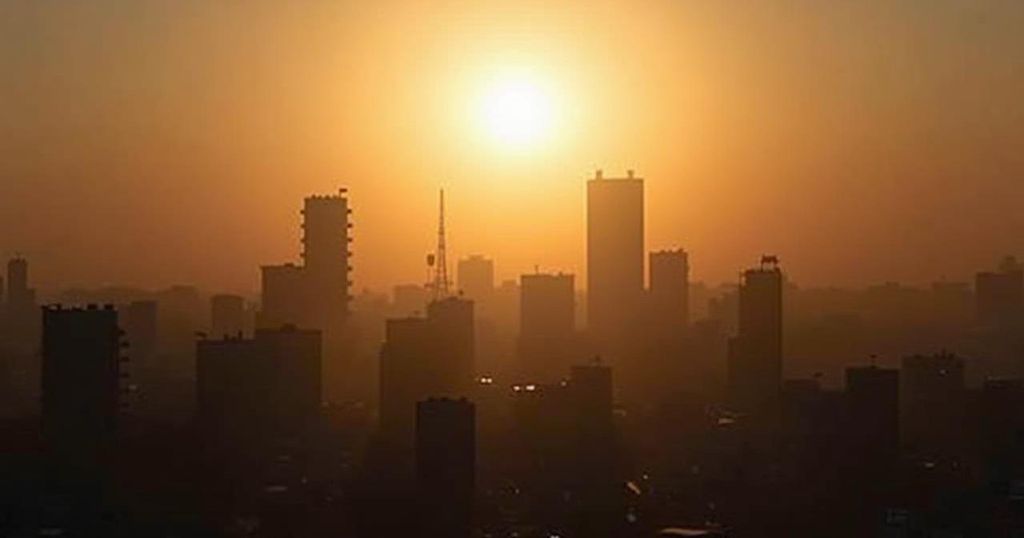Israeli Airstrikes Intensify Conflict with Hezbollah and Cut Off Key Border Crossing

In a dramatic escalation, Israel executed extensive airstrikes in the southern suburbs of Beirut, cutting off a crucial border crossing with Syria, prompting fears of a wider regional conflict. These developments follow a series of military actions against Hezbollah and the heightened involvement of Iran, further complicating the security situation in the Middle East. Multiple strikes resulted in significant destruction and civilian displacement amidst ongoing clashes post the October 7 Hamas attack on Israel.
Israel conducted a significant series of airstrikes in the southern suburbs of Beirut overnight, leading to the closure of a principal border crossing between Lebanon and Syria. This escalation follows Israel’s warning for individuals to evacuate areas in southern Lebanon that lie outside a United Nations-designated buffer zone amidst heightened tensions with the Lebanese militant group Hezbollah. In conjunction with these airstrikes, Israel initiated a ground offensive in Lebanon on Tuesday, prompting clashes with Hezbollah forces near the border. Previous attacks had resulted in the deaths of several key Hezbollah figures, including the group’s longstanding leader, Hassan Nasrallah. The situation escalated further with the arrival of Iranian Foreign Minister Abbas Araghchi in Beirut, aimed at addressing the ongoing conflict surrounding Israel and Hezbollah. This visit followed Iran’s recent missile attacks on Israel, indicating a precarious security climate in the region, with fears of a broader conflict looming. Eyewitness reports described the airstrikes in Beirut as intensely disruptive, sending large clouds of smoke and flames into the air and shaking nearby buildings. Initial accounts from Lebanon’s state-run National News Agency indicated that over ten airstrikes occurred on Thursday evening. The targeted bombing resulted in the blockade of the busy Masnaa Border Crossing, critical for those fleeing violence in Lebanon to cross into Syria. Footage captured during this event revealed severe damage to the road, forcing some civilians to traverse on foot due to obstructed vehicle access. The Israeli military has suggested that Hezbollah was attempting to move military supplies through this border crossing, emphasizing their established connections with Iran for weapon supplies. The airstrikes represent an unprecedented impact on this border crossing since the onset of hostilities, which escalated significantly following a cross-border attack by Hamas on October 7, leading to over 1,200 Israeli deaths and the taking of approximately 250 hostages. In parallel, the Israeli military also reported conducting strikes in Tulkarem, a known stronghold for militant activity in the occupied West Bank. This attack reportedly resulted in the deaths of eighteen individuals in a refugee camp, revealing the broader violence that has erupted amid the ongoing conflict. Since the outbreak of hostilities in October 2023, over 41,000 Palestinian fatalities have been reported, with women and children constituting a considerable portion of the casualties, alongside nearly 2,000 fatalities in Lebanon. The continuous barrage of violence underscores the critical need for a ceasefire and diplomatic engagement to restore stability in the region.
The Israeli-Lebanese conflict has deep historical roots, characterized by military engagements and the involvement of regional allies such as Iran and local factions such as Hezbollah. In October 2023, the dynamics intensified following a significant cross-border assault by Hamas against Israel, which catalyzed a broader military response from Israel across multiple fronts. The ongoing violence has led to substantial casualties on both sides and exacerbated the humanitarian crisis in Lebanon and the Palestinian territories, calling attention to the urgent need for international mediation and conflict resolution to prevent further escalation.
The recent airstrikes by Israel on Beirut and the closure of the Masnaa Border Crossing highlight the escalating violence in the region, driven by long-standing tensions between Israel and Hezbollah, exacerbated by Iranian involvement. The situation remains volatile, with significant humanitarian implications, as many civilians continue to be caught in the crossfire. The international community’s role will be crucial in seeking a resolution to this entrenched conflict and mitigating further civilian harm.
Original Source: nypost.com








